Mentors
Research Interests and Interactions of the Training Faculty. A brief description of the research focus of each training faculty member is presented below; the faculty is grouped according to the research themes of the CVR Program: 1) Molecular Basis of Cardiac Function, 2) Signaling in Vascular and Pulmonary Disease, and 3) Cardiovascular and Pulmonary Disease – Molecules to Treatments. Although organized into three themes, many faculty identify with more than one theme as is evident from the extensive interactions within and between themes.
 Physiology
Professor, Physiology
Professor, Evelyn F Mcknight Brain Institute Professor, BIO5 Institute Professor, Speech/Language and Hearing Cardiovascular and Pulmonary Disease – Molecules to Treatments
Influence of sleep and breathing on cardiovascular health. |
 Physiology
Assistant Professor, Physiology
Cardiovascular and Pulmonary Disease – Molecules to Treatments
Neural contributions to cardiovascular and renal disease |
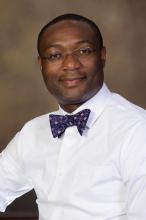 Assistant Professor, Medicine
Assistant Professor, Clinical Translational Sciences Cardiovascular and Pulmonary Disease – Molecules to Treatments
|
|
Medicine
Professor, Medicine
Co-Chief, Division of Genetics - Genomics / Precision Medicine |
|
Otolaryngology
Professor, Otolaryngology
Vice Chair, Academic Affairs - Otolaryngology Associate Professor, BIO5 Institute Associate Professor, Clinical Translational Sciences Associate Professor, Neurosurgery Molecular biology of airway epithelia and surgical simulation |
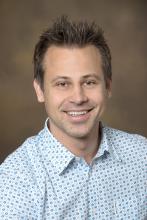 Cellular and Molecular Medicine
Assistant Professor, Cellular and Molecular Medicine Director, iPS Cell Core
Assistant Professor, BIO5 Institute Assistant Professor, Biomedical Engineering Assistant Professor, Genetics GIDP Assistant Professor, Physiological Sciences GIDP Cardiovascular and Pulmonary Disease – Molecules to Treatments
Stem cells, tissue engineering, heart disease modeling, drug discovery |
 Department of Cellular and Molecular Medicine
Associate Professor, BIO5 Institute
Associate Professor, Biomedical Engineering Associate Professor, Cellular and Molecular Medicine Associate Professor, Clinical Translational Sciences Associate Professor, Physiological Sciences - GIDP Member of the Graduate Faculty Molecular Basis of Cardiac Function
The Colson laboratory focuses on myofilament proteins that regulate contraction (e.g., MyBPC and MLC). He uses biophysical approaches, such as time-resolved spectroscopy with state-of-the art site directed probes to assess protein structural dynamics and mechanical measurements of isolated diseased muscle fibers. He has leveraged his technology into a high-throughput novel drug-discovery platform that is highly efficient and precise - accelerating the process of lead identification of drug candidates. |
|
Cellular and Molecular Medicine
Assistant Professor, Cellular and Molecular Medicine
Assistant Professor, BIO5 Institute Member of the General Faculty Member of the Graduate Faculty Human genome regulation and cellular diversity |
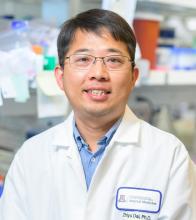 Internal Medicine
Assistant Professor, Internal Medicine
Assistant Professor, Clinical Translational Sciences Assistant Professor, BIO5 Institute Member of the General Faculty Member of the Graduate Faculty Cardiovascular and Pulmonary Disease – Molecules to Treatments, Signaling in Vascular and Pulmonary Disease
Cardiopulmonary vascular biology and lung disease. |
|
Department of Physiology
Member of the Graduate Faculty
Professor, BIO5 Institute Professor, Ophthalmology Professor, Physiology Signaling in Vascular and Pulmonary Disease
The principal focus of Dr. Delamere’s research is to understand how cells speed or slow the activity of the Na,K-ATPase active transporter and thereby regulate fluid balance, cell proliferation, and gene expression. |
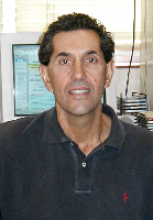 Department of Physiology
Professor, Physiology
Professor, Physiological Sciences - GIDP Member of the Graduate Faculty Professor, Evelyn F Mcknight Brain Institute Professor, Neurobiology - CIDP Professor, Neuroscience - GIDP |
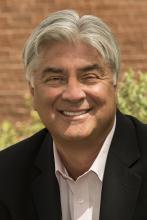 Department of Medicine
Professor, BIO5 Institute
Professor, Medicine Professor, Pharmacology and Toxicology Professor, Physiological Sciences - GIDP Professor, Physiology The Merlin K. DuVal, MD Endowed Chair for Leadership & Innovation in the Arizona Health Sciences Cardiovascular and Pulmonary Disease – Molecules to Treatments
Dr. Garcia is a physician-scientist, who directs a research group interested in pulmonary disease. His group applies a systems level approach for gene and SNP discovery, protein function assessment, genetic manipulation, in vivo testing and candidate gene and biomarker identification in humans. His laboratory investigates the biology of endothelial barrier function with the goal of developing novel ways to prevent vascular leak, reduce swelling, inhibit tissue damage, and restore the integrity of vessel walls. |
|
Translational Cardiovascular Research Center
Director, Center for Translational Cardiovascular Research
Associate Dean, Research Professor Professor, BIO5 Institute Member of the Graduate Faculty Heart Failure; Ischemic Heart Disease |
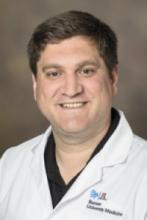 Department of Psychiatry
Associate Professor, Psychiatry
Associate Professor, Psychology Associate Professor, Medicine Assistant Professor, Neuroscience - GIDP Assistant Professor, Physiological Sciences - GIDP Associate Professor, Clinical Translational Sciences Cardiovascular and Pulmonary Disease – Molecules to Treatments
Sleep and Cardiometabolic Health |
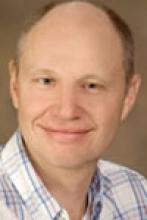 Department of Cellular and Molecular Medicine
Professor, Cellular and Molecular Medicine
Professor, Molecular and Cellular Biology Professor, Physiology Professor, Physiological Sciences - GIDP Professor, Biomedical Engineering - GIDP Professor, BIO5 Institute Allan and Alfie Norville Endowed Chair in Women’s Heart Disease Molecular Basis of Cardiac Function
Dr. Granzier’s laboratory investigates titin and its role in normal and abnormal heart function using bioengineering, physiology, and mechanical approaches. Focus areas of research include 1) intact cardiac myocyte mechanics and study of the changes in diastolic and systolic mechanics and calcium handling in response to beta-adrenergic signaling; 2) strain dependence of hypertrophy signaling in cardiac muscle; and 3) the role of titin in heart failure with preserved ejection fraction (HFpEF). |
 Department of Cellular and Molecular Medicine
Assistant Vice Provost, Global Health Sciences
Executive Director, Health Sciences Global and Online Department Head, Cellular and Molecular Medicine Director, Molecular Cardiovascular Research Program Co-Director, Sarver Heart Center Professor, Cellular and Molecular Medicine Professor, Molecular and Cellular Biology Professor, BIO5 Institute Molecular Basis of Cardiac Function
Research in the Gregorio laboratory focuses on identifying 1) the mechanisms involved in the assembly, regulation and maintenance of cytoskeletal/contractile proteins in cardiac muscle and in particular the role of that thin filament length dysregulation plays in human cardiomyopathies; and 2) unique structural biomarkers for the complex remodeling that occurs in human dilated cardiomyopathy. |
|
Medicine
Research Scientist, Respiratory Sciences
Professor, Public Health Professor, Medicine Professor, BIO5 Institute Director, Epidemiology Member of the Graduate Faculty Autoimmunity in Asthma |
 Associate Professor, Basic Medical Sciences
Associate Professor, Clinical Translational Sciences Cardiovascular and Pulmonary Disease – Molecules to Treatments, Molecular Basis of Cardiac Function
The Hale lab investigates the mechanisms involved in the pathological remodeling of the heart, vasculature and erectile tissue that underlie heart failure and sexual dysfunction. In addition, we are examining the role that prenatal stress plays in predisposing individuals to cardiovascular disease and sexual dysfunction in adulthood. The long-term goal of our work is to develop novel therapeutic strategies for the treatment of these two conditions. |
 Department of Cellular and Molecular Medicine
Member of the Graduate Faculty
Professor, BIO5 Institute Professor, Biomedical Engineering Professor, Physiological Sciences - GIDP Professor, Physiology Molecular Basis of Cardiac Function
Dr. Harris’ research group aims to understand how contractile proteins (i.e., myosin binding protein C) cooperate to produce force and how defects in these proteins can lead to HCM. Her group employs genetic, molecular, biochemical and biophysical approaches to decipher these interactions. |
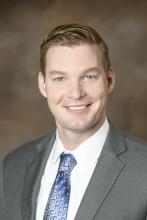 Pharmacy Practice & Science
Associate Professor, Pharmacy Practice-Science
Assistant Professor, Genetics - GIDP Associate Professor, Clinical Translational Sciences Associate Professor, Applied BioSciences - GIDP Member of the Graduate Faculty Cardiovascular and Pulmonary Disease – Molecules to Treatments
Dr. Karnes' primary area of research interest is cardiovascular and immune pharmacogenomics, specifically investigating the utility of genetic polymorphisms to predict adverse drug reactions. He employs a translational approach to investigate pharmacogenomic associations using observational studies, functional genomics techniques, and eventually prospective clinical trials. |
 Department of Physiology
Acting Program Director
Associate Professor, Biomedical Engineering Associate Professor, Cellular and Molecular Medicine Associate Professor, Molecular and Cellular Biology Associate Professor, Nutritional Sciences Member of the Graduate Faculty Professor Professor, Physiological Sciences - GIDP Molecular Basis of Cardiac Function
The Konhilas laboratory focuses on sex differences in human cardiac disease resulting from hypertension, myocardial infarction and hypertrophic cardiomyopathy (HCM). His group exploits innovative, translationally relevant, methods to study menopausal hypersensitivity to cardiac disease utilizing molecular, cellular, and physiological tools. Recent work has resulted in an on-going human subjects trial. |
 Member of the General Faculty
Member of the Graduate Faculty Assistant Professor, Pharmacology Assistant Professor, BIO5 Institute Cardiovascular and Pulmonary Disease – Molecules to Treatments
Blood Brain Barrier Chronic Pain Headache Drug Delivery Drug Discovery Neuroscience/Neuropharmacology Sex Differences Synaptic physiology TBI Chronic impacts of drug exposure on neuro, cardio and pulmonary physiology |
 Department of Cellular and Molecular Medicine
Associate Director
Associate Professor, Applied BioSciences - GIDP Associate Professor, BIO5 Institute Associate Professor, Cellular and Molecular Medicine Associate Professor, Clinical Translational Sciences Associate Professor, Immunobiology Associate Professor, Medicine Co-Director, Clinical Translational Sciences Graduate Program Member of the Graduate Faculty Cardiovascular and Pulmonary Disease – Molecules to Treatments
Dr. Ledford’s research is primarily focused on the role of SP-A in maintaining airway homeostasis during mycoplasma infection by contributing to both innate and adaptive immune responses. Her lab focuses on how SP-A regulates degranulation of mast cells and eosinophils in asthma. |
 Department of Pharmacy Practice & Science
Associate Professor, Pharmacy Practice & Science, R. Ken Coit College of Pharmacy
Assistant Dean, Student Services, R. Ken Coit College of Pharmacy Clinical Associate Professor, Geriatrics, General Internal Medicine & Palliative Medicine, College of Medicine-Tucson Research Associate, Arizona Center on Aging Executive Committee Member, Innovations in Aging GIDP Member of the Graduate Faculty Cardiovascular and Pulmonary Disease – Molecules to Treatments
Dr. Lee is a clinical scientist with expertise in pharmacotherapy and geriatric pharmacy, who conducts patient-oriented clinical research working with interdisciplinary teams to improved medication adherence for diverse people with hypertension. Interventions for improving medication adherence include technology innovations for older adults with hypertension and interprofessional team-based care for hypertension management in low-income, underrepresented populations. |
 Physiology
Professor and Department Head, Physiology
The Liang group studies molecular systems medicine. The current work in our group focuses on three areas: (epi)genomics and precision medicine, regulatory RNA, and cellular metabolism, as they relate to hypertension and cardiovascular and kidney diseases. We have a multidisciplinary, translational research platform where we integrate human research with animal, induced pluripotent stem cell (iPSC), and other model system research using approaches of physiology, multi-omics, single-cell and spatial omics, big data analysis, genome editing, genetics, biochemistry, and molecular and cell biology. |

